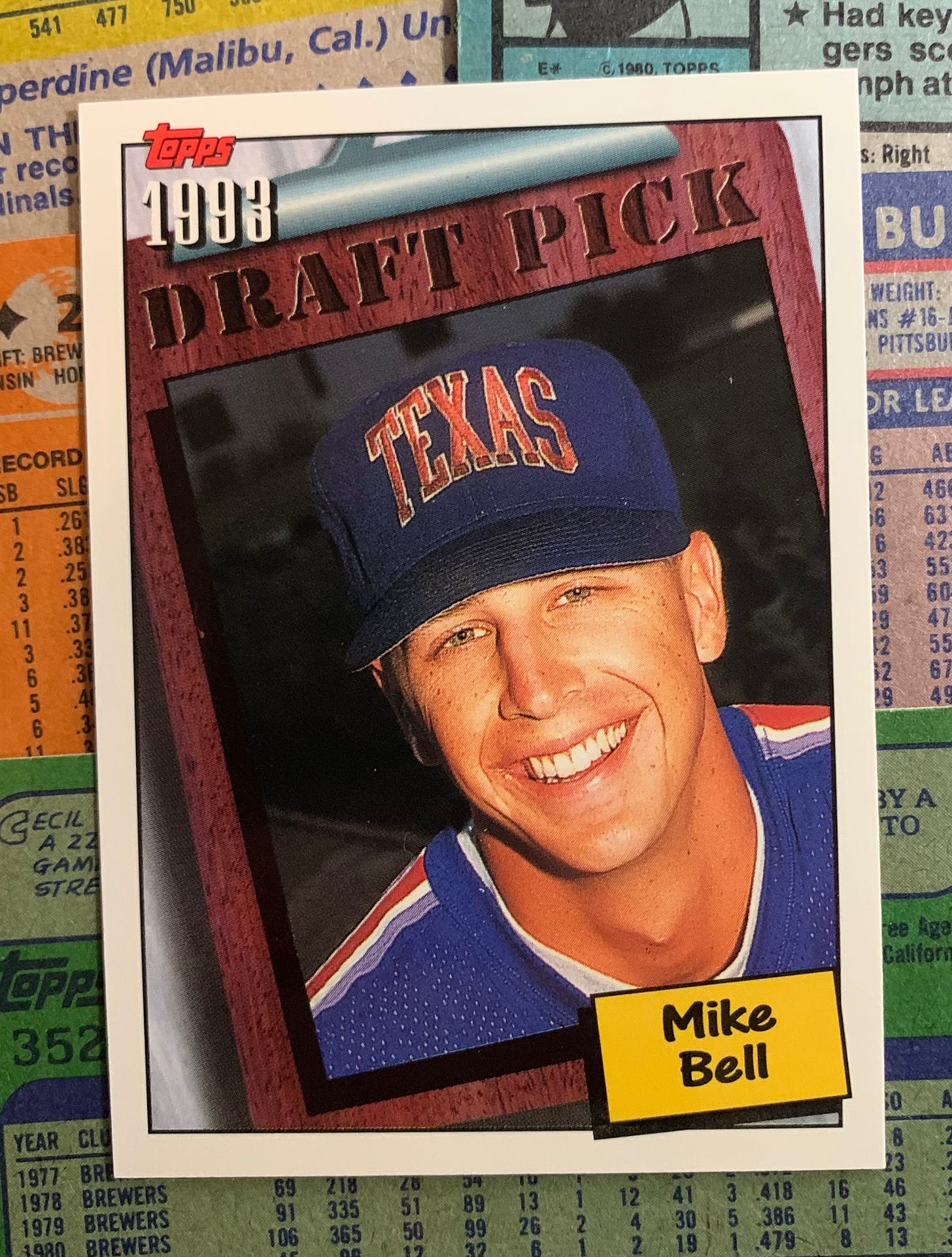Top Chef Baseball
As teams seek new ways to innovate, Wylie Dufresne reveals competitive advantages from the kitchen
Welcome to Warning Track Power, a weekly newsletter of baseball stories and analysis grounded in front office and scouting experiences and the personalities encountered along the way. If you don’t already subscribe and have made it this far, join the team for free right here!
I recently listened to the podcast “Losing Your Mind With Chris Cosentino” because I wanted to hear what the guest, Wylie Dufresne, a culinary hero of mine, had to say about his new pizza-related exploits.
Dufresne went from college to The French Culinary Institute in New York, and then proceeded to work his way up in the restaurant industry. He cooked in kitchens under some of the world’s best chefs in the ’90s.
In 1999, he became chef at a restaurant on the Lower East Side called 71 Clinton Fresh Food. At the same time, I was a young editor at Wine Spectator magazine.
As my understanding and appreciation of food and wine was developing, Dufresne’s blend of traditional culinary expertise and intellectual curiosity put him on my radar. He was popularizing molecular gastronomy in America, fully embracing the playful nature of his dishes. (I’m going to steer things back towards baseball now, but if anyone wants to talk more about Dufresne, please email me or speak up in the comments below.)
On the podcast, the 51-year-old chef made two comments — declarations of his philosophical tenets, really — that carried my thoughts from fine dining to a big league diamond.
Very early in his career, Dufresne heard a cautionary tale from the chef de cuisine at a restaurant where he was working. “Don’t skip steps,” Dufresne was told. “I skipped steps, don’t skip the steps… I went up the ladder too fast, and I skipped a bunch of the rungs.”
Looking around MLB today, you’ll find many coaches whose resumes don’t resemble those of coaches from even 10 years ago. One of the biggest differences is simply in the length of those resumes. Climb the ladder or take the express elevator instead?
The Orioles recently hired co-hitting coaches for the upcoming season. Ryan Fuller and Matt Borgschulte, both 31, will share the responsibility. Between the two of them, there’s one year of pro baseball playing experience. Fuller played rookie ball for the Diamondbacks in 2012; I’d be lying if I said I remember him.
Both men spent some time as minor league coaches, but when you’re 31, there are only so many seasons to live through. Rest assured that on Opening Day this year, there will be scouts wearing socks older than some of the rookie coaches.
Still, it’s unfair to criticize any young coach for accepting a Major League role. The responsibilities and expectations of a big league staff have changed, and decision makers in the office are executing a vision that has become largely unrecognizable to many who played it. Baseball in the age of modern information is a different game.
The chef seemed to understand.
Dufresne’s second foundational comment focuses on the reason for doing things in the kitchen. He identified cooking as an unusual craft because a chef can know how to produce outstanding food without knowing why it was so great.
“I began to realize than an aspect of all of our culinary education was somewhat hollow,” he said on Cosentino’s podcast. “We had the how but not the why.”
Dufresne reached new heights when he opened wd~50 in 2003. He was inspired to establish a restaurant where questions around the why could be explored by both the staff and even the diners, if desired. Participation was encouraged; curiosity was nurtured.
“We set about creating a place where everybody could continue to learn, and, in that learning, we discovered a whole new world of toys and techniques and equipment and understanding that we could then apply creatively,” he said.
Now you tell me: Does that sound like modern cooking, or is it more like today’s tech-driven pitching labs? Isn’t this new world of toys, techniques, equipment and understanding on display nightly on most broadcasts?
I think the danger comes when organizations adopt these newer philosophies without knowing the why. Many organizations have hired coaches from Driveline Baseball, the data-driven player development laboratory outside of Seattle.
Some of those relationships have ended prematurely. I think those unsuccessful partnerships stem from a belief that the how itself would be enough.
Dufresne’s wisdom made me think of two former D-backs colleagues of mine.
Ray Montgomery, who was the director of amateur scouting in Arizona, was officially named bench coach of the Angels last week. When I met Montgomery in late 2010, we had both recently joined the D-backs.
Montgomery played baseball at Fordham and was a 13th-round draft pick of the Astros in 1990. He appeared in the big leagues with Houston in 1996, 1997 and 1998. His teammates included Hall of Famers Jeff Bagwell and Craig Biggio.
When his playing days ended, Montgomery stepped on every rung of that ladder. He served as an area scout, then regional supervisor, and then national supervisor, all with the Brewers before making the calls in the D-backs draft room. After working in a player personnel capacity last year with the Angels, Montgomery is back in uniform again.
And, I should add, he might still fit in his uniform from the late ’80s with the Astros.
The one-step-at-a-time journey was also embraced by another former D-backs colleague, the late Mike Bell.
Bell was the farm director in Arizona when Montgomery was the scouting director. At the time of Bell’s passing not even one year ago, he was the bench coach for the Twins.
Bell, a first-round draft pick, had a brief big league career and played 13 seasons in the minors. He then spent time as a minor league manager before becoming farm director.
He stepped on a lot of rungs. These days, you never know where the next hitting coach, bench coach, or even Major League manager might come from. The origin stories of the field staff are growing more diverse.
I spent a lot of time in meetings with Montgomery and Bell, and — while both clearly possessed the baseball savvy and experience in addition to the emotional intelligence and capacity for compassion that great coaches demonstrate — I never once considered that I might be sitting with two future bench coaches.
I’m fortunate to have had friends and colleagues who don’t skip steps and who understand the why. They also have a passion that fuels curiosity and exploration.
From the stove top to the warning track, the recipe for success is clear.
Thank you for reading Warning Track Power. Subscribe now to have WTP delivered to your inbox every week without interruption, rain or shine.



